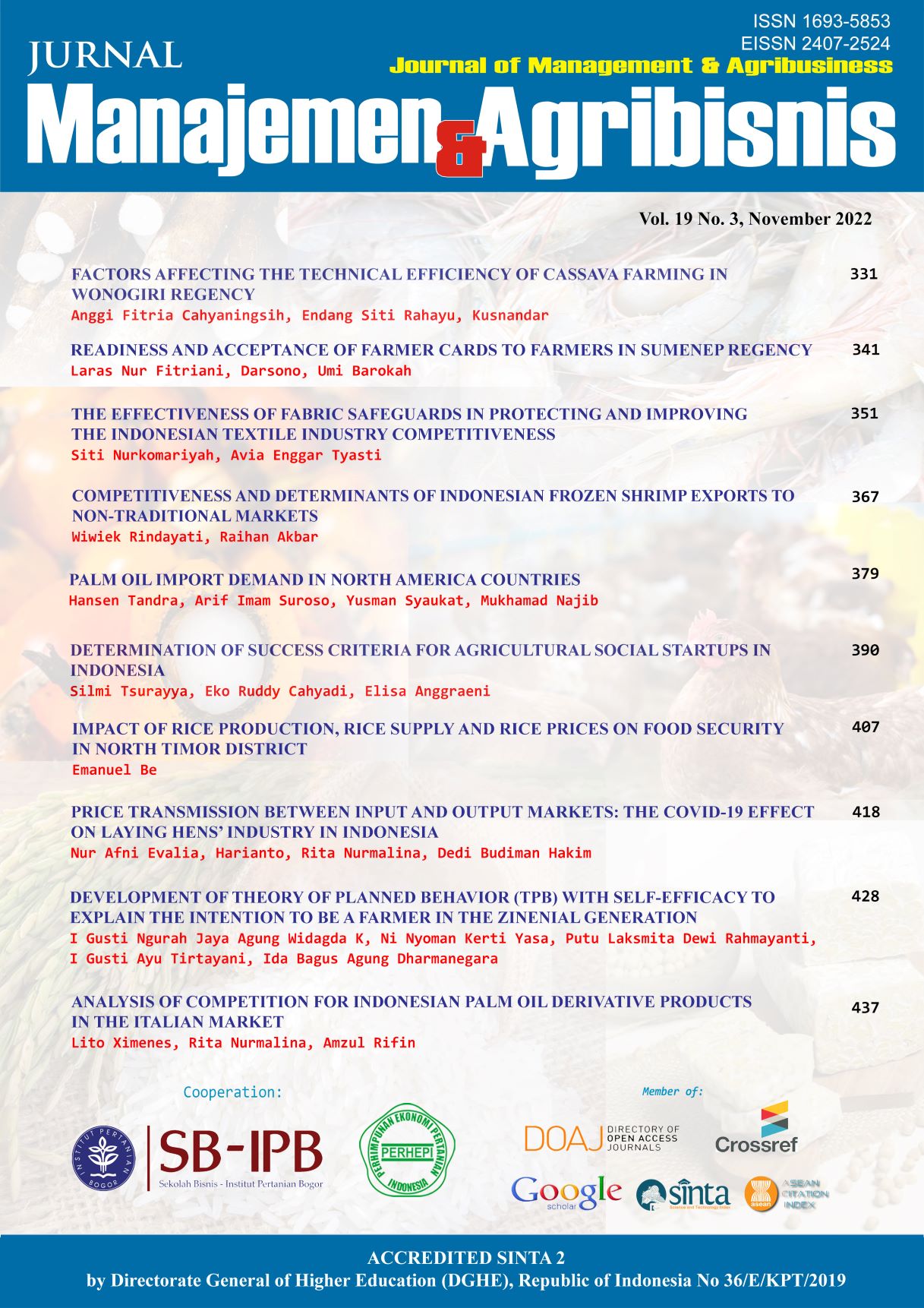The Analysis of Competition for Indonesian Palm Oil Derivative Products in The Italian Market
Abstract
Indonesia is the world's largest producer and exporter of palm oil that has been recognized by foreign countries. Italy is the largest importer of Solid Palm Oil Fraction (SPOF) in the European Union. This article examines the analysis of SPOF Indonesia's competition in the Italian market. The method used is AIDS with a SUR approach that iterates through the application of STATA. The secondary data used is a time series on import value and quantities from 2004 to 2021 by Italy. The results showed that the price elasticity and expenditure of Indonesian SPOF imports were more elastic than Malaysia and the Netherlands. SPOF Indonesia is a luxury good but the price is lower. The elasticity of own price (Hicksian), the Netherlands is more elastic, while Indonesia is Marshallian. Cross price elasticity (Hicksian and Marshallian), the relationship between Indonesia-Malaysia compete by means of substitution. Meanwhile, the Netherlands-Indonesia and the Netherlands-Malaysia complement each other. Therefore, the Indonesian must add quality classes and added value to SPOF products in accordance with the quality of Malaysian and Netherlands products to increase consumer attractiveness. As a result, there will be bilateral cooperation between the two main producing countries of the SPOF in the Italian market to prevent a trade war.
Keywords: AIDS, competition, elasticity demand, solid palm oil fraction
Authors
Authors who publish with this journal agree to the following terms:
- Authors retain copyright and grant the journal right of first publication with the work simultaneously licensed under a Creative Commons Attribution License that allows others to share the work with an acknowledgement of the work's authorship and initial publication in this journal.
- Authors are able to enter into separate, additional contractual arrangements for the non-exclusive distribution of the journal's published version of the work (e.g., post it to an institutional repository or publish it in a book), with an acknowledgement of its initial publication in this journal.
- Authors are permitted and encouraged to post their work online (e.g., in institutional repositories or on their website) prior to and during the submission process, as it can lead to productive exchanges, as well as earlier and greater citation of published work (See The Effect of Open Access).

